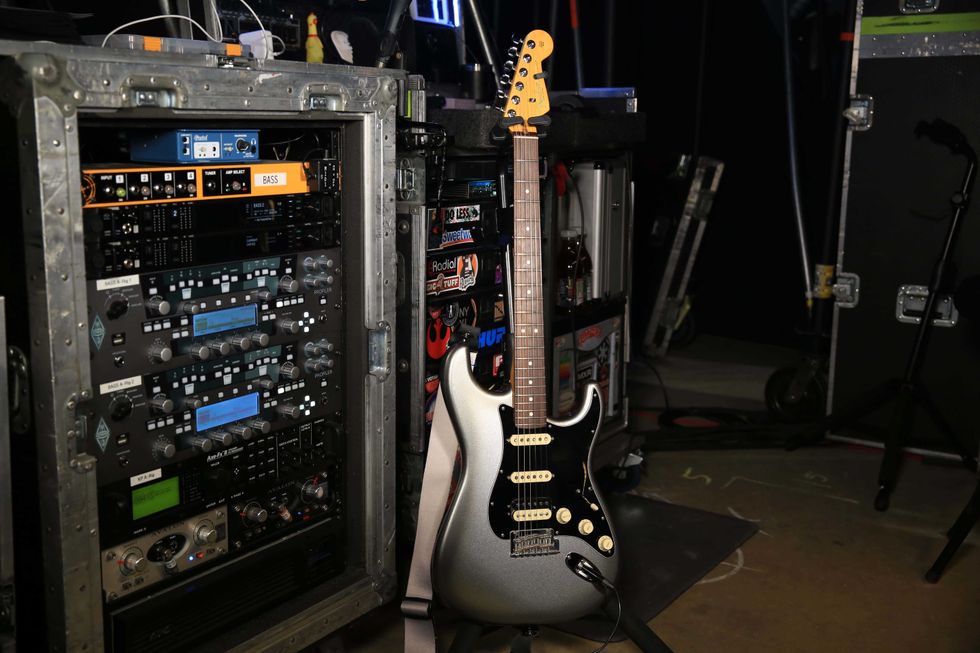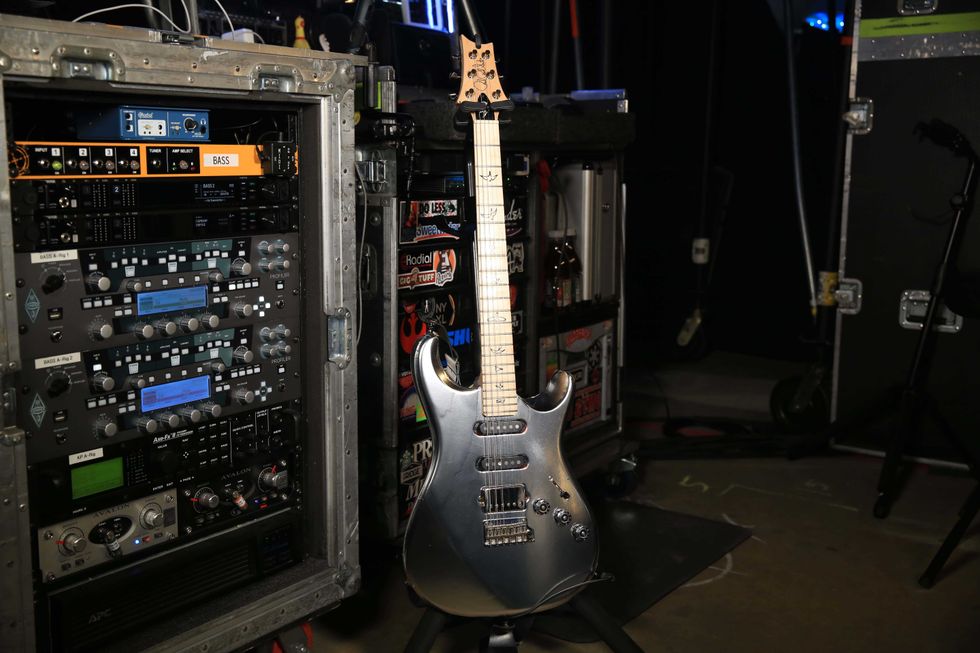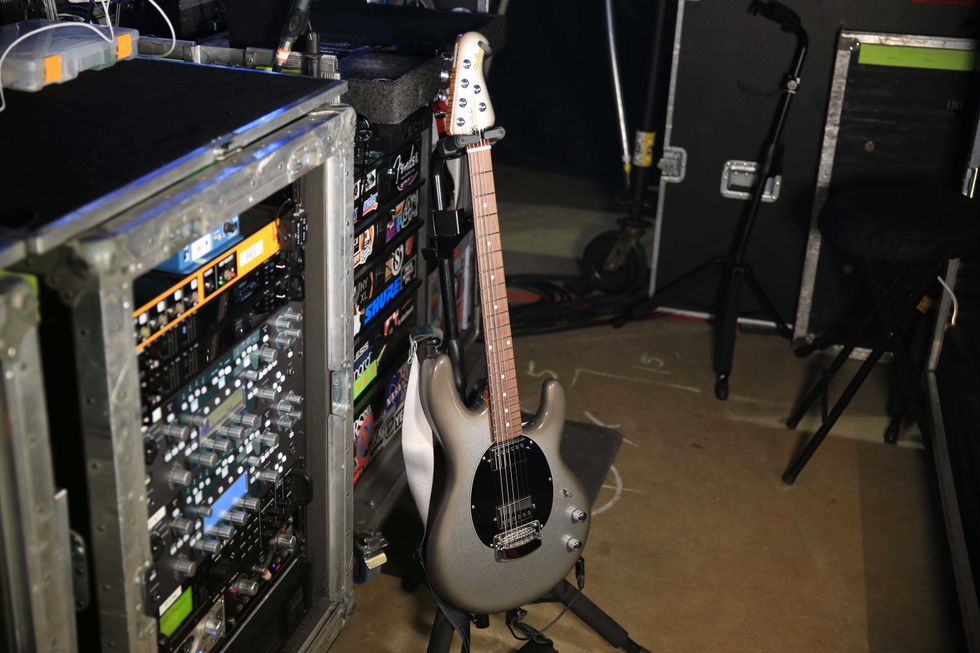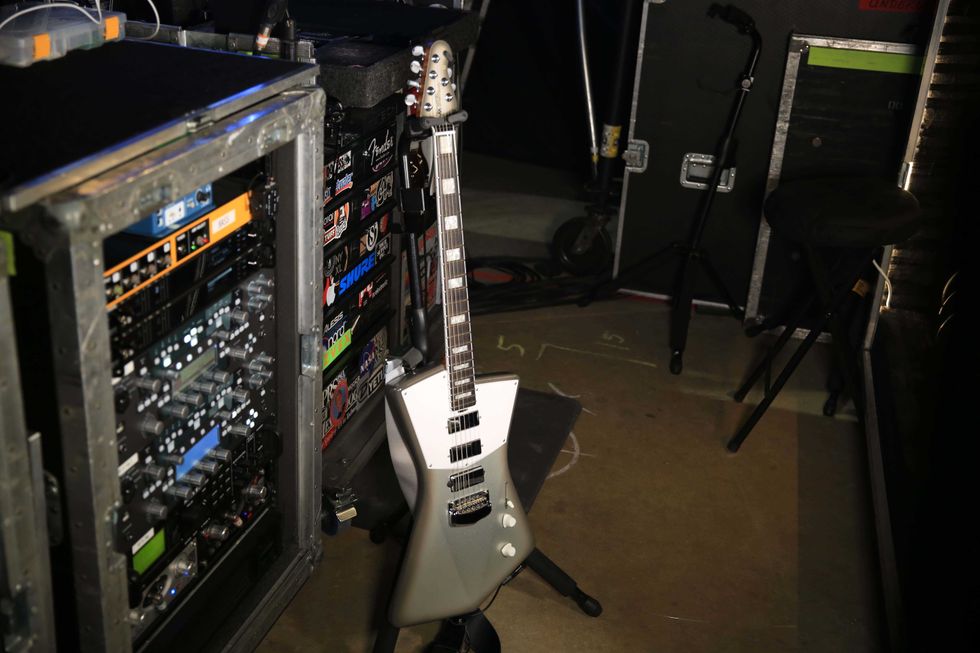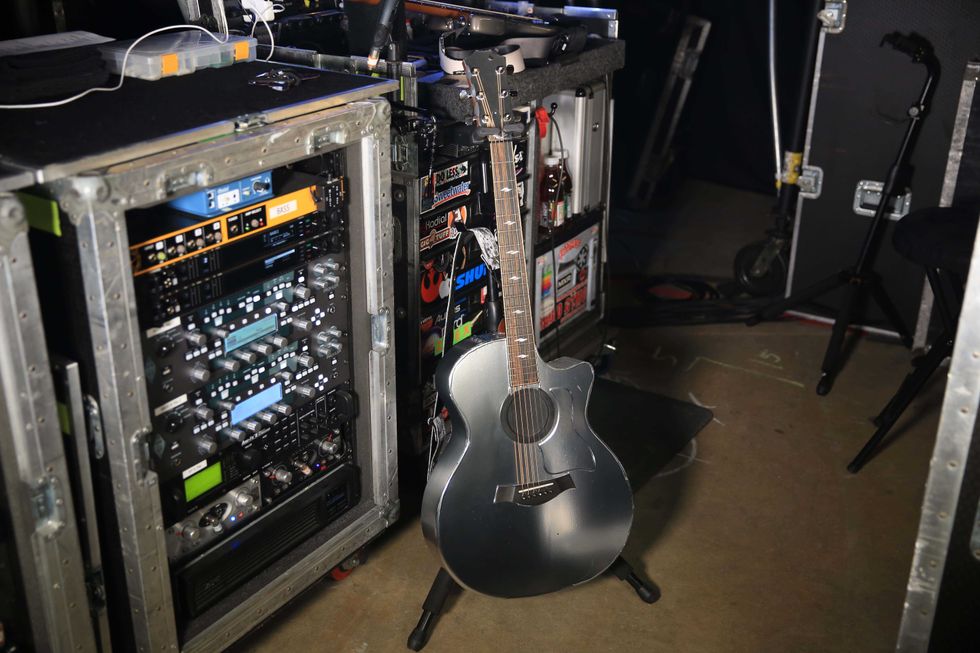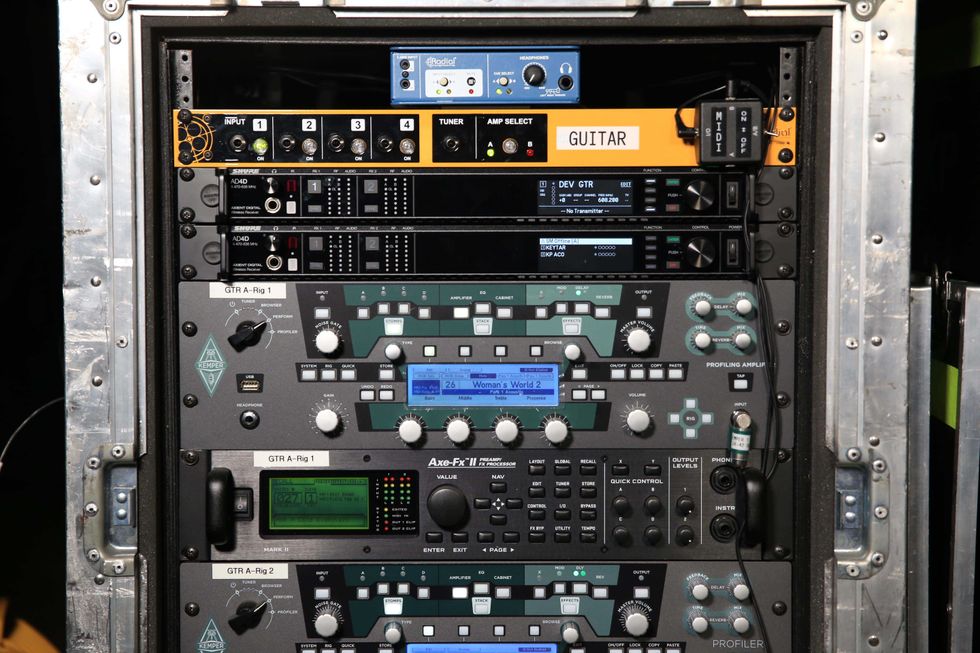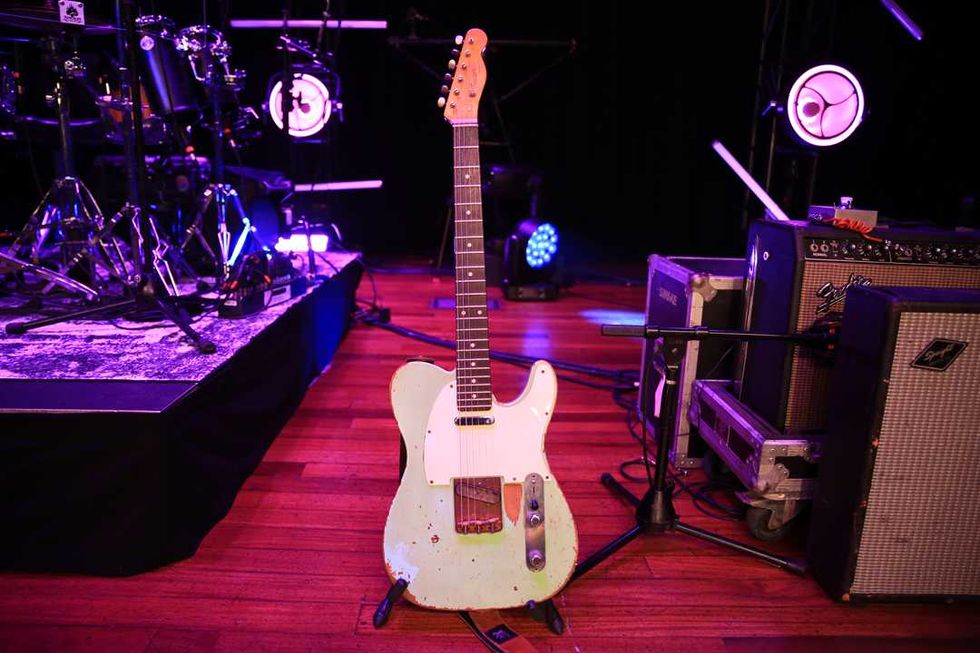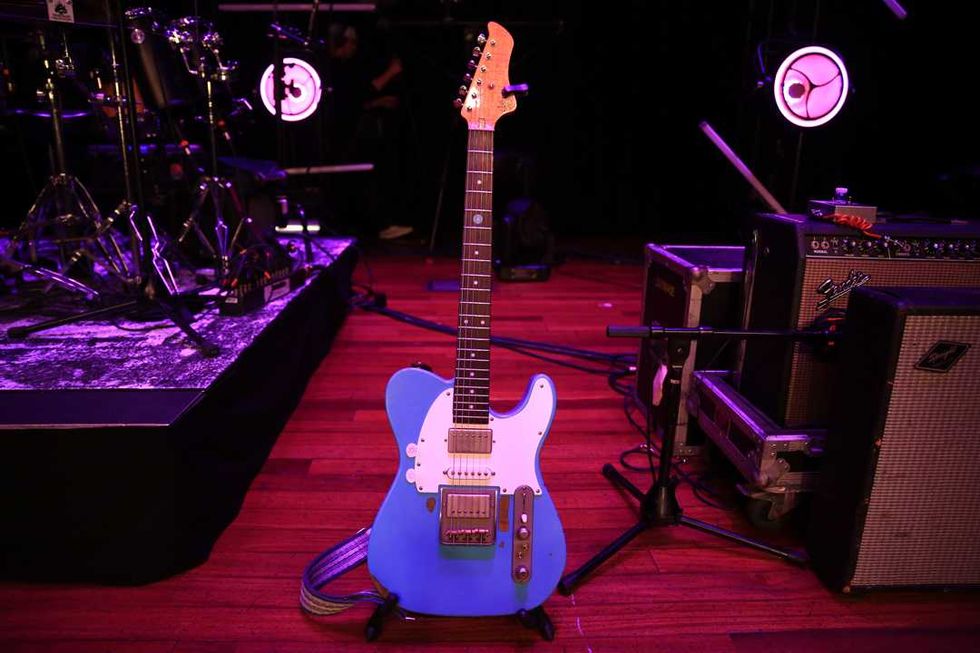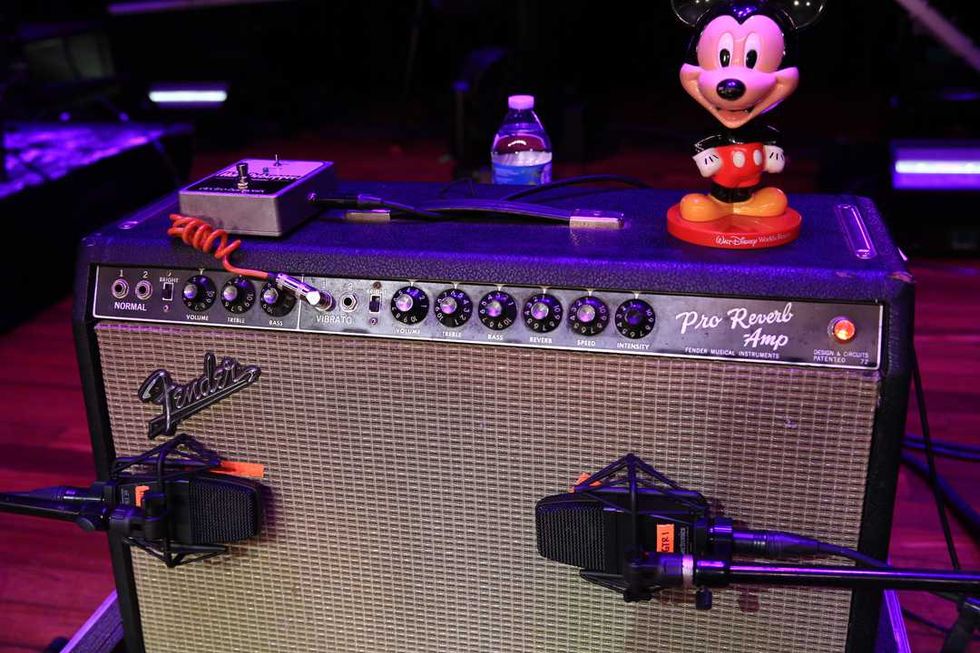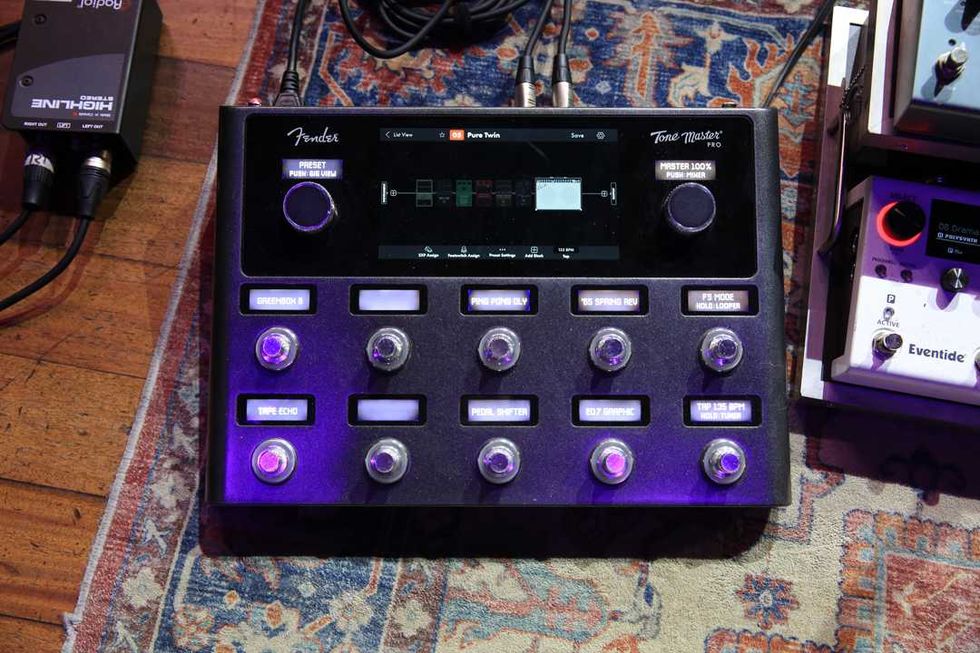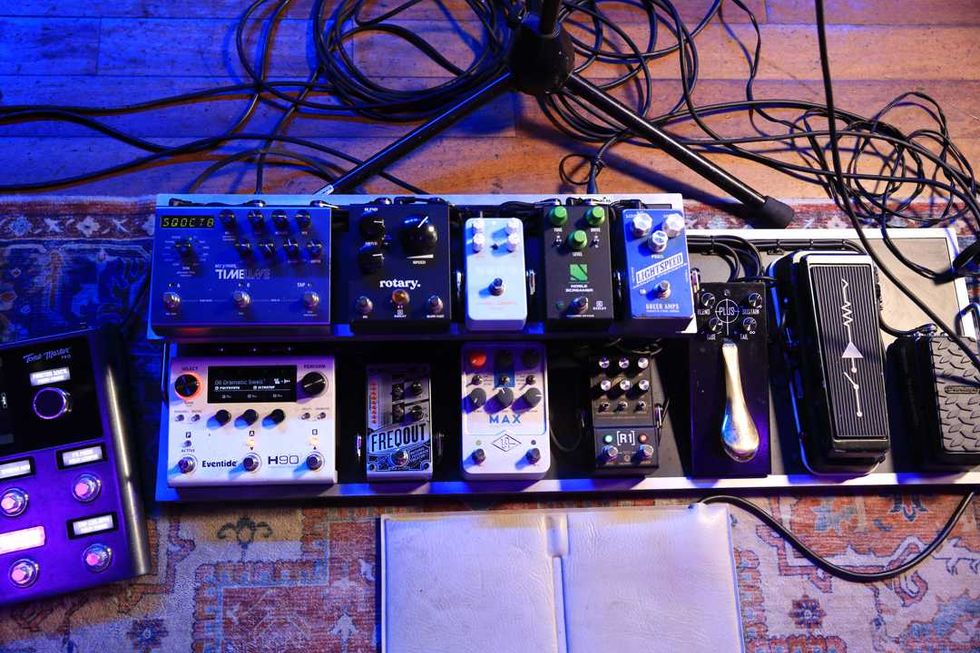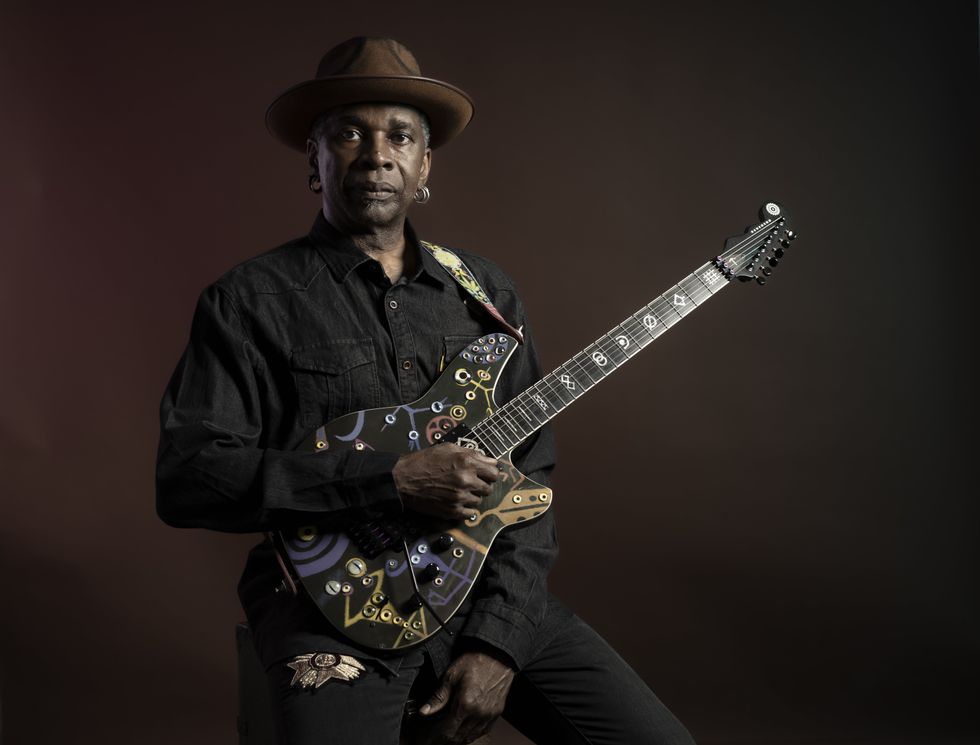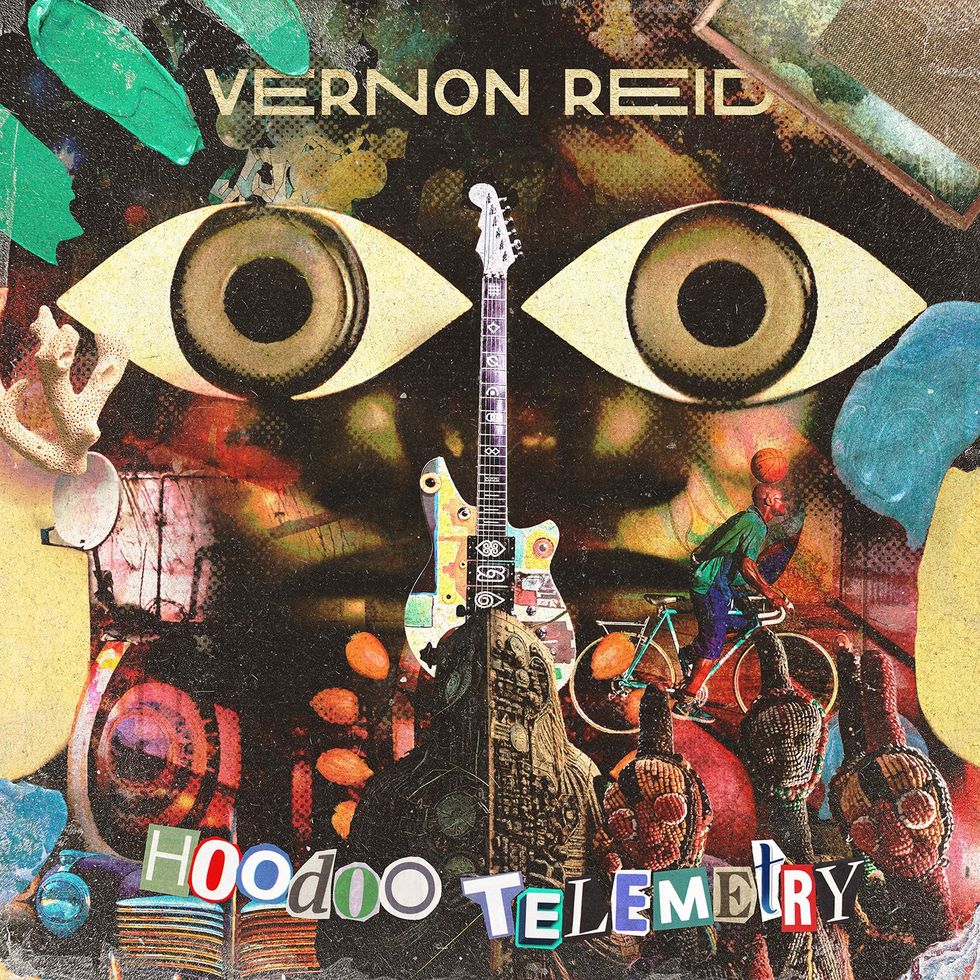Stephen Malkmus and Matt Sweeney go way back.
The two musicians and songwriters have been part of the same cohort since Malkmus’ band Pavement took off in the early 1990s. Pavement went the way of indie-rock royalty, defining an entire new generation of slightly left-of-center guitar music. Sweeney slugged it out for years in bands like Chavez and Zwan, that never reached those levels of influence. Still, he was an indispensable sideman and in-demand collaborator. But it wasn’t until just before the pandemic that the two friends recorded together, on Malkmus’ solo acoustic record, Traditional Techniques. It went well—really well.
So when Sweeney suggested they get together again, Malkmus was game. But this time, Sweeney invited some friends. He knew the guitarist Emmett Kelly from their time playing with Will Oldham, aka Bonnie “Prince” Billy, and the two developed a bond over a mutual aesthetic sensibility on the guitar. And Kelly played in a duo called the Double with drummer Jim White, another serial collaborator best known for his instrumental Australian group Dirty Three. So, White and Kelly got invites. (It turned out that Malkmus was a fan of Kelly’s lo-fi weirdo-folk project Cairo Gang.)
The Hard Quartet - "Earth Hater" Official Music Video
They all met up at Strange Weather, a Brooklyn studio where Sweeney was working. The studio was on its deathbed: The buildings on either side of it had been demolished, and it was slated for the same fate to prep the way for a new condo build. The owner and house engineer, Daniel Schlett, was depressed. Sweeney figured some fun, no-stakes sessions—committed to the studio’s original vision of total artistic freakness—were called for. “The idea was like, ‘Let’s go and try recording, everybody bring songs and we’ll see what happens, and if it sucks, we don’t care because it’ll just be a nice thing to do in this beautiful studio that’s going away,’” he explains.
When the foursome initially met at Strange Weather in early summer 2023, there were no plans and no expectations. Over a year later, we have the Hard Quartet and their self-titled debut record, an epic, 15-song double LP that captures the spirit of adventure, imagination, and unedited, base instinct that unites the four musicians. When time came to pick a name for the project, Malkmus suggested they use the word “band” or “quartet.” “Matt was just immediately like, ‘Hard Quartet, because we’re hard as fuck,’” laughs Kelly.
“Finding phrases that make it sound not boring is the basic idea: simple things with twists.” —Stephen Malkmus
Sweeney’s boldness, in both the band name and in pulling all the players together, is perhaps the key to all of this. “Matt’s always confident, or at least he likes to pretend he is, in a good way,” says Malkmus. “He knows that’s how music should be sometimes. Most people that make music actually are confident or they wouldn’t do it. They like their own music and they’re confident it’s good, and then they have to kind of act. They’re also needful and worried that people won’t like it, and want people to like it but also think that it’s good.”
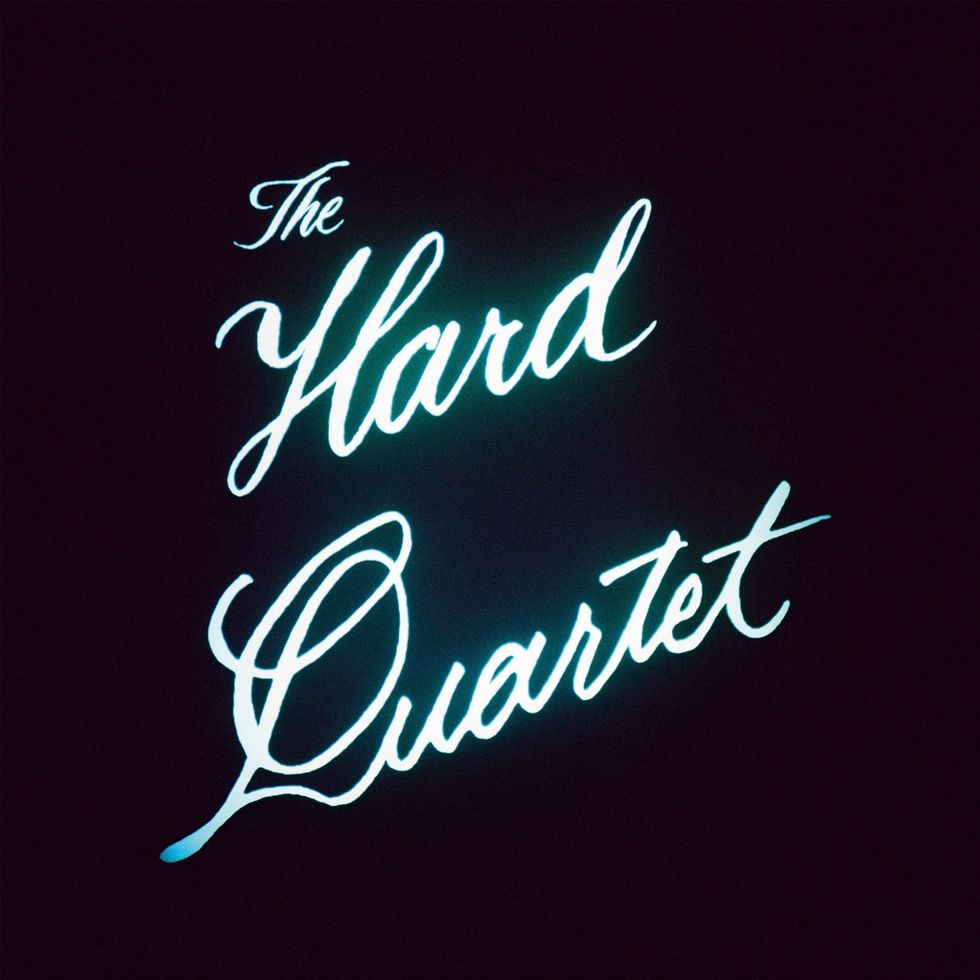
The Hard Quartet is heavily indebted to ’90s indie and alternative rock, but the 15-track double LP dips into Americana, country, and weirder territories, too.
Maybe Sweeney was being tongue-in-cheek, but more likely, it’s just the honesty of a group of musicians who can’t be bothered to affect an air of deep reasoning or artsy symbolism. Though, Hard Quartet isn’t terribly hard music. It moseys through different guitar-based genres, most of it fairly lo-fi and garage-ish. There’s plenty of Pavement-leaning indie-rock, charged with clever wordplay, edge-of-breakup chording, and general slacker charisma. There’s a certain Guided by Voices sensibility to it all, too; the feeling that guitar rock doesn’t need to be perfect or cohesive or together to be good.
Songs on Hard Quartet shamble along loosely between movements and moods, and often, they sort of dogleg and fall apart after wanky outros, just like the end of an in-person jam. Opener “Chrome Mess” is a thrashing, dark, noisy piece of indie-grunge, followed by the quirky, fuzzy alternative of lead single “Earth Hater” and its nursery-rhyme chorus. “Rio’s Song” is like a gentler, college-rock rendition of T. Rex, featuring Sweeney pulling off a Marc Bolan vocal character. Another Sweeney-led joint, “Killed by Death,” is driven by White’s snare-roll shuffle and plucky Americana guitars. The back-to-back of “Six Deaf Rats” into “Action for Military Boys,” both with Malkmus on lead vocals, pull the record into more borderless, atypical grounds. Hard Quartet feels deeply, profoundly artistic not in production or complexity, but via a feeling of total artistic freedom and intuition.
“It’s not magic, it’s actually just work and saying, ‘Do it again.’” —Stephen Malkmus
“When you’re doing a first thing, it’s not so bad to go simple,” says Malkmus. “Like, you know, to have these adherents of the Velvet Underground and the Stones. These songs are like, I wouldn’t say simple, they’re complexly simple to give us some credit.”
Malkmus has been watching a YouTuber who switches between two chords on piano while playing nearly limitless inversions of each chord. “He takes the mystery away from things that I do that I think are really clever or something,” he continues. “At any rate, that’s what we’re doing too. But pianos somehow have less magic because you can’t bend the notes too much. It’s all math, almost. Of course there’s feel and there’s going off the grid, but with the guitar sometimes it feels more magical. Those real simple little moves you make with the bending of the strings. It’s chops and it’s also ideas, creativity. Finding phrases that make it sound not boring is the basic idea: Simple things with twists.”
Stephen Malkmus's Gear
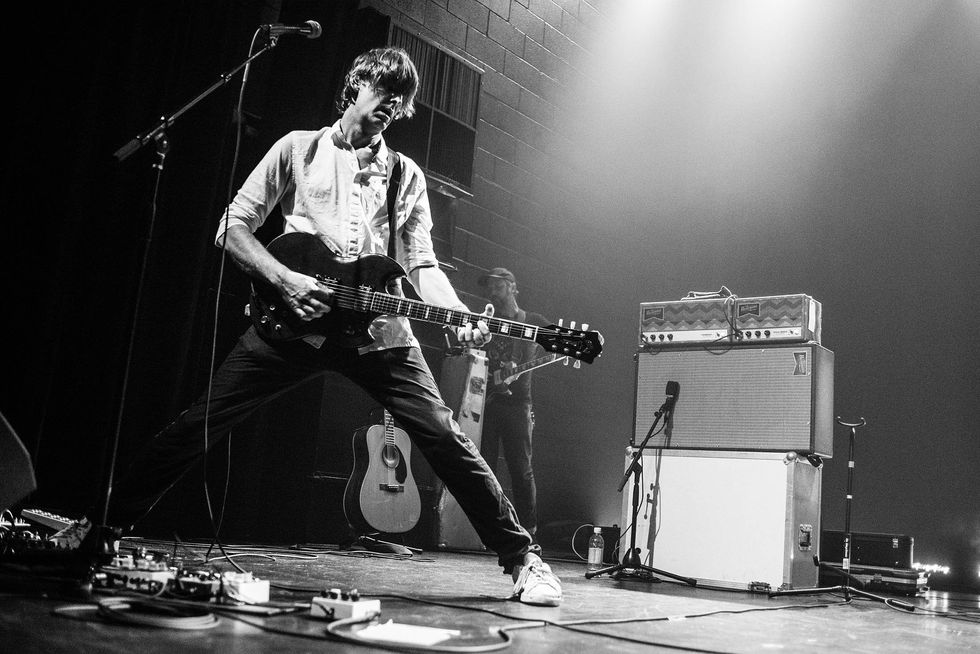
Stephen Malkmus, performing here with his band the Jicks in 2018, has known Matt Sweeney since the beginning of Pavement. After he invited Sweeney to play on his 2020 acoustic record, Sweeney had the idea to take things a step further.
Photo by Mike White
Guitars
- 1959 Fender Jazzmaster
- 1965 Höfner Verithin
- 1958 Martin 000-18 strung with flatwounds
- Vintage Gibson Firebird
- Vintage Guild S-100
Effects
- Roger Mayer Axis Fuzz
- Love Pedal High Power Tweed Twin
- Strymon Flint
- Strymon El Capistan
- Foxx Tone Machine
Malkmus likes to dig around for different voicings, but he prefers to do his digging by feel. “What you don’t know is a good thing,” he says. “Too much knowledge, I think it can hurt you at that early time instead of just being sort of primitive.”
The four members of Hard Quartet share a “musical language,” according to Malkmus, which made it easy to create without much structure to their initial sessions at Strange Weather. “I don’t think any of us wanted to spend the whole time saying, ‘It goes like this,’” says Malkmus. “We just kind of wanted to start messing around, having fun.”
“There’s a throughline in everything I like, that is this aspect of harshness, or bloodiness. Things need to be bloody for me to like them.” —Emmett Kelly
Part of the three guitarists’ shared language on the instrument is a passion for wonky sounds. Kelly explains the aesthetic in-depth: “We really connect on things sounding like shit, kind of. I love the sound of the guitar when it sounds like it’s about to die or it’s broken. We love this music that’s like fucked up and damaged, like the rawest, most screwed-up thing. There’s a throughline in everything I like, that is this aspect of harshness, or bloodiness. Things need to be bloody for me to like them. We just want to sound fucked up and terrible, but it’s gotta sound really good, you know what I mean? You pass through this pain threshold, and that’s when you start to hear all these beautiful, weird harmonic things, especially with a damaged amp or a really insane overdrive or fuzz. You just start to hear aspects of harmonic series come shooting out in really interesting ways. Sometimes you’ll hear phantom notes, things that ring-modulate the sound a little bit.” One time in a studio, Kelly’s friend pointed out a pedal that he said was the least useful pedal of all time. “I immediately went home and bought one,” says Kelly. “I mean, none of this shit’s useful. Should we be plumbers?”
Matt Sweeney's Gear

Matt Sweeney and Emmett Kelly became close friends while on tour with Will Oldham. Here, they flank Oldham on a tour supporting 2022’s Superwolves.
Photo by Tim Bugbee/tinnitus photography
Guitars
- 1958 Martin 000-18, strung with flatwounds
- Vintage Fender Esquire
- Vintage Gibson ES-335TD
- 1970 Martin dreadnought acoustic
Amps
- Austen Hooks Bell and Howell Filmosound amp
Effects
- Blackstrap Electrik Co. fuzz pedal
Hard Quartet’s debut record is also shaped by the fact that none of the players brought their own gear to the studio; Malkmus, Kelly, and Sweeney all opted to use whatever guitars, amps, and pedals were kicking around at Strange Weather, and later at Rick Rubin’s Shangri-La studio in Malibu, where Sweeney secured the group a few days of extra sessions. A late-’50s Fender Jazzmaster, ’60s Gibson Explorer, vintage Höfner Verithin, 1958 Martin 000-18, Squier Bass VI, and purple Guild S-100 were among the tools used to create Hard Quartet. Malkmus says he didn’t even want to bring his own guitars. “I like to use new shit all the time,” he says. “It’s just fun to hear the little tonal differences. I don’t really have a sound. I just want to try new things and I’m not afraid to do that. And we all know it’s in your hands.”
“I don’t even feel like it’s a guitar record, but obviously that’s all we fucking know how to play.” —Matt Sweeney
“I’ve gone through the whole gamut of identity crises with guitar and I’ve gotten to a point where I really just want something that won’t break if I check it on an airplane,” Kelly says. His main guitar is a 1988 Japan-made Fender Stratocaster, with the middle pickup removed and a TBX circuit instead of the traditional tone control. Kelly is skeptical of too much attention put on gear. “There’s a lot of artifice in music and gear and it all seems to be related to this whole kind of like, rehashing, redoing; sort of like the AI conversation,” he says. “It’s like, just play fucking music. It doesn’t matter.”
The three guitarists often played through one of Sweeney’s amps, built by amp tech Austen Hooks and housed inside an old Bell and Howell Filmosound projector. But it was mostly a matter of convenience—the amp was simply ready at hand. “I think me and Steve are similar in that when you’re making the thing, you’re not thinking about the gear,” says Sweeney. “You’re grateful that there’s stuff there that you can pick up and play.”
Emmett Kelly's Gear
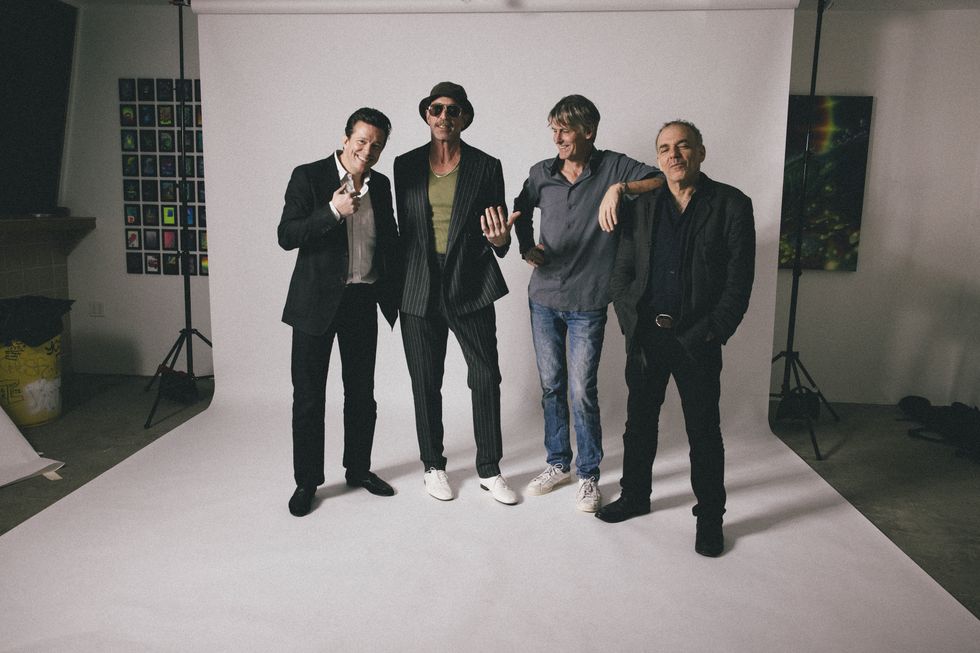
Hard Quartet (from left: Kelly, Sweeney, Malkmus, and White) bonded over an affinity for deliciously crappy guitar tones. Their debut record is a treasure trove of lo-fi 6-string sounds.
Photo by Atiba Jefferson
Guitars and Basses
- 1988 Japan-made Fender Stratocaster with middle pickup removed and TBX tone circuit
- 1994 Fender Jerry Donahue Signature Telecaster
- 2005 Martin 00-28
- 1959 Les Paul Jr. Double Cut
- 1957 Fender Esquire
- Squire Bass VI with Lollar overwound pickups
Amps
- Fender ’68 Custom Deluxe Reverb with added master volume
- Peavey Roadmaster with 2x12 cabinet
- 1950s Supro
- Ampeg B12XT
Effects
- Crowther Double Hotcake
- Crowther Prunes & Custard
- Death By Audio Octave Clang
- Fredric Effects Verzerrer
Strings & Picks
- La Bella Pure Vintage (.011–0.50)
- La Bella Silk & Steel
- La Bella Bass VI Stainless Flats
Given the players’ combined ethos, it’s not really a surprise to learn that they rarely, if ever, discussed who would play what instrument on any given song. Leads were improvised and swapped at random, and the bass guitar was passed around from song to song. Some songs and parts would come together quickly; others required massaging. Having to plug away at something doesn’t make it any less valuable than an instant hit, says Malkmus. “It’s not magic,” he says. “It’s actually just work and saying, ‘Do it again.’”
The equal-footing, collaborative nature of the Hard Quartet has been a bright spot for Kelly, who was getting burnt out on the emotional anxiety and tension of being a bandleader. With Malkmus, Sweeney, and White, there are combined decades of camaraderie that equate to an open, trusting ease. “It’s probably safe to say that the Hard Quartet is about the continual relationship between each two people,” says Kelly. “Everyone had a strong connection with each other in some way so that new relationships could then develop.”
In the end, Sweeney’s little jam experiment has paid off. “I’m happy with what we did on it guitar-wise, and that’s because we played together,” says Sweeney. “I don’t even feel like it’s a guitar record, but obviously that’s all we fucking know how to play.”
YouTube It
The Hard Quartet have a ’90s-style, apartment-stoop jam in this video for the Sweeney-fronted, alt-rock-meets-alt-country tune, “Rio’s Song.”


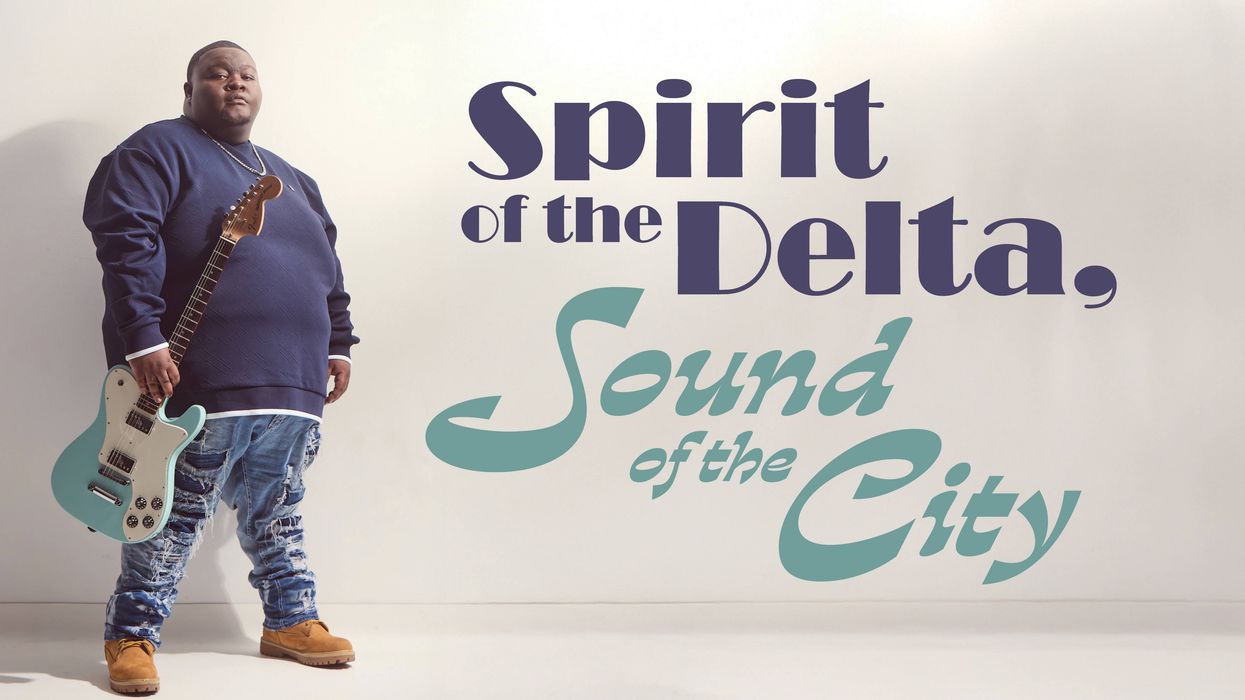


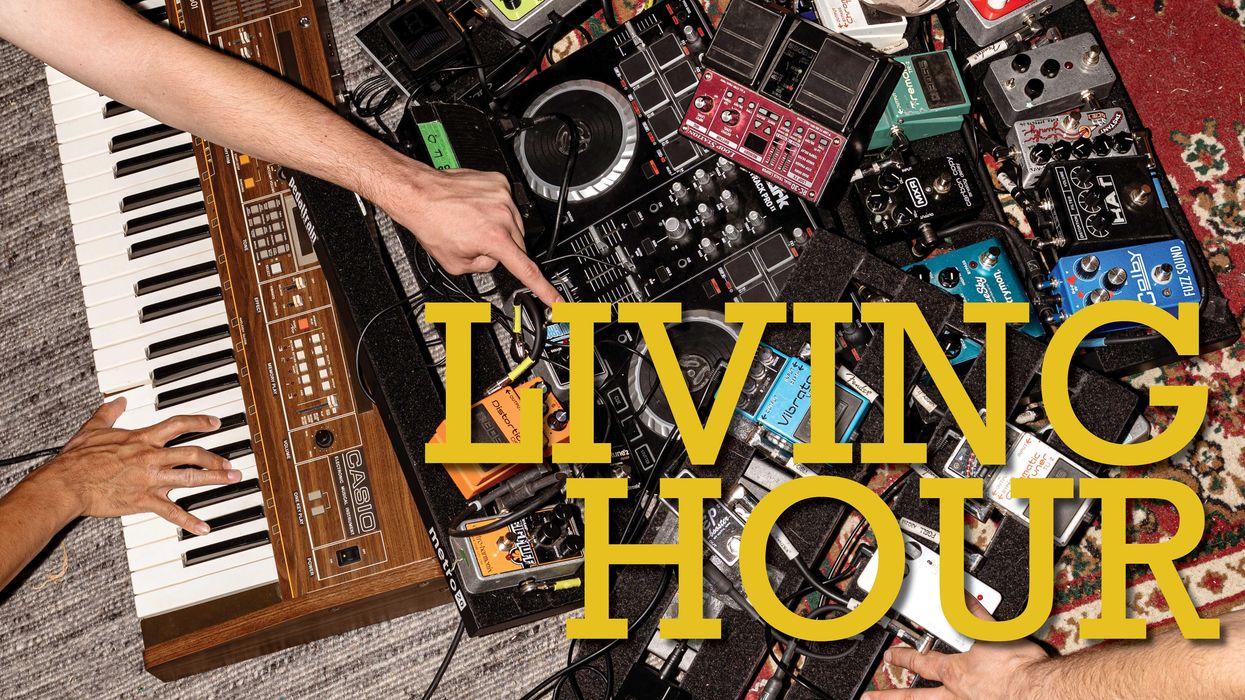

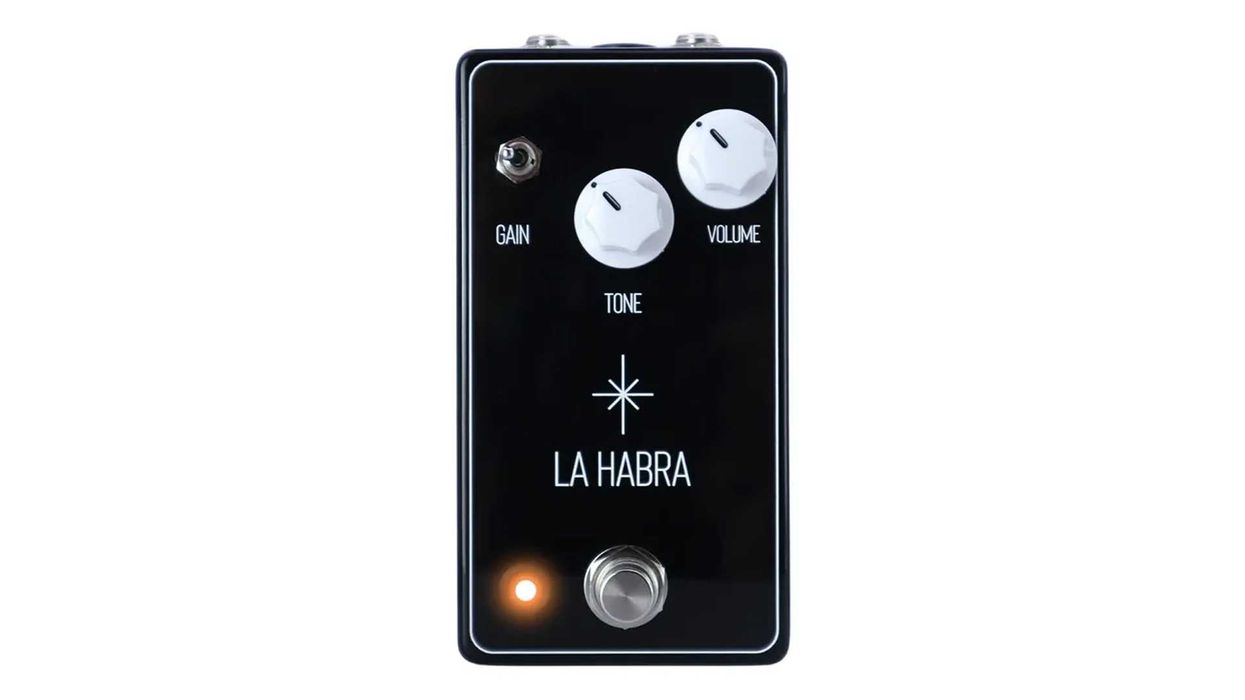


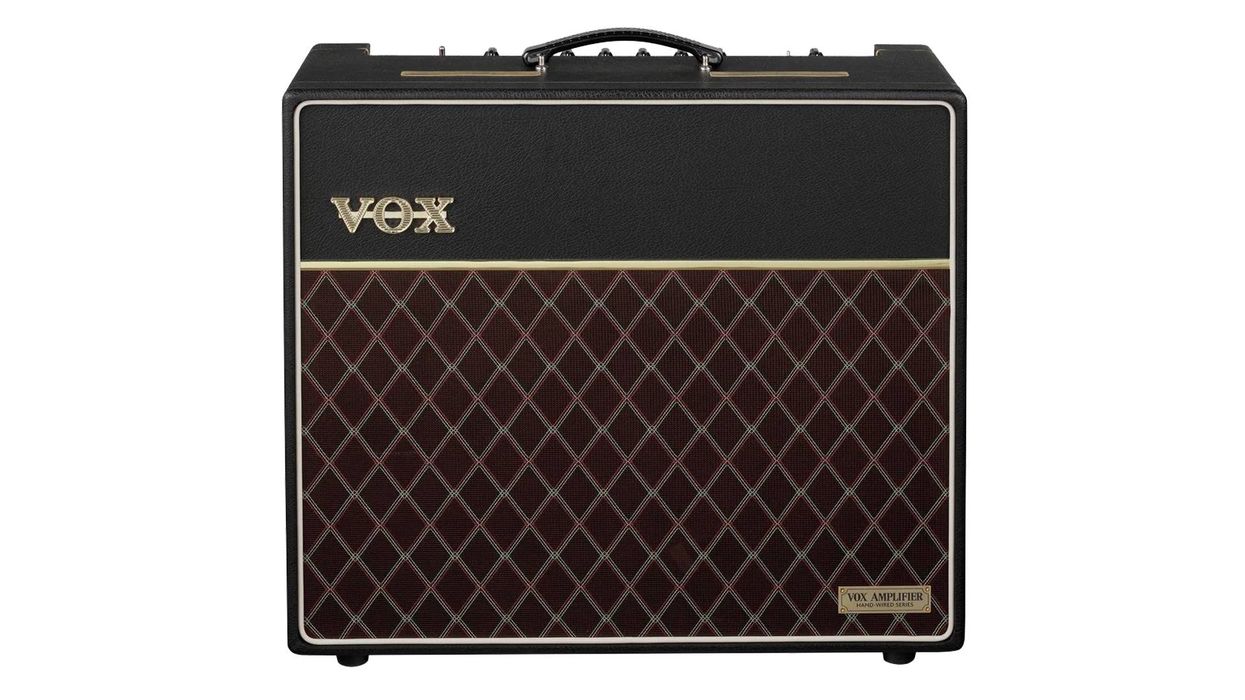

![Rig Rundown: AFI [2025]](https://www.premierguitar.com/media-library/youtube.jpg?id=62064741&width=1245&height=700&quality=70&coordinates=0%2C0%2C0%2C0)












 Shop Scott's Rig
Shop Scott's Rig![Devon Eisenbarger [Katy Perry] Rig Rundown](https://www.premierguitar.com/media-library/youtube.jpg?id=61774583&width=1245&height=700&quality=70&coordinates=0%2C0%2C0%2C0)
